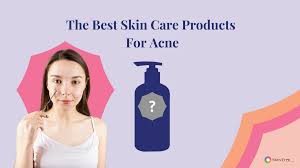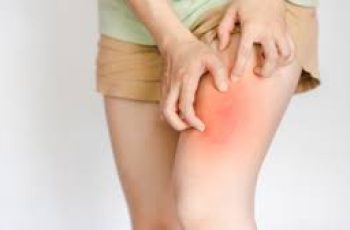
Best Skincare Products for Acne- Dermatologist Acne Product Reviews
Are you looking for the best skincare products for acne? I can help! In this article I review the acne products that I use to treat my acne patients and tell you why I choose them and how to know which ones are best for you and do not have comedogenic ingredients.
When I treat patients with acne, I know that managing breakouts is about more than just making pimples go away. Acne is a multifaceted skin concern that doesn’t exist in isolation. Most acne products only target active breakouts. But my acne patients often also need to treat the dark spots left behind, facial redness, dry skin, and signs of aging.
So before you buy any skincare products to treat your acne, it’s important to understand your specific skin needs. I recommend taking our scientific skin type quiz to determine which of the 16 Baumann Skin Types you are. This will provide insight into whether your skin tends to be oily, dry, sensitive, or prone to pigmentation. Knowing your skin type helps me curate a custom skincare routine with products that will be gentle yet effective.
Acne Spot Treatments
Do you have a pimple that you want to get rid of? I can help! Here is my advice on a few ways to treat pimples:
Instructions on popping pimples
How to heal acne scabs
If you do not have a pimple that is ready to pop, and you do not have a scab, using an acne treatment product can help. Look for anti-inflammatory ingredients like salicylic acid, sulfur, and caffeine to shrink pimples.
Here are the acne treatment products that I use in my patients:
Acne Cleansers
Acne cleansers should decrease acne causing bacteria, stabilize the microbiome, and lower the skin’s pH.
You can learn more about acne cleansers here.
For my oily skin patients I prefer salicylic acid cleansers:
[[C01]]
For my dry acne prone patients, I prefer alpha hydroxy acid cleanser:
[[C04]]
Moisturizers for Acne Prone Skin
Noncomedogenic Moisturizers for Oily Acne-prone Skin
These light noncomedogenic moisturizers are the ones I recommend for my oily skin patients with acne.
[[M01]]
Noncomedogenic Moisturizers for Dry Acne-prone Skin
For dry skin that needs a heavier moisturizer:
Retinol for Acne
Prescription acne medications like tretinoin (Retin A) turn into retinol in your skin. This means that retinol, although not as strong as prescription retinoids, can prevent and treat acne. I like to start my acne patients on a low strength retinol and slowly increase the strength to prevent retinoid dermatitis.
Learn how to use retinol for acne here.
These are the best retinols for beginners to treat acne:
[[T11]]
Benzoyl peroxide for Acne
Benzoyl peroxide (BP) is one of the strongest treatments for acne, but it prevents acne rather than treating acne you already have. (although it does help unclog pores). BP works by killing acne causing bacteria and is very effective at getting rid of acne.
Benzoyl Peroxide Cleansers
BP is irritating to dry skin types and many dry types cannot tolerate it- especially in leave on lotions and creams. Using BP in a cleanser is a good way for dry skin types to tolerate BP.
BP cleansers are also really good for back acne!
[[C07]]
Benzoyl Peroxide Lotions and Creams
BP comes in many prescription acne creams; some are even combined with retinoids. These should be used in your night skincare routine.
Here are some BP acne spot treatment products you can get without a prescription:
[[T32]]
Make sure you take the skin type quiz before using any of these strong benzoyl peroxide acne products because dry, sensitive skin types may not be able to tolerate them.
Best Noncomedogenic Sunscreens
For acne-prone skin, it’s crucial to choose an oil-free, noncomedogenic sunscreen that won’t clog pores and trigger breakouts. I recommend these dermatologist-approved sunscreens specifically formulated for acne-prone skin:
EltaMD UV Clear Broad-Spectrum SPF 46 –
This lightweight mineral sunscreen contains lactic acid and niacinamide to calm breakouts and redness. It provides hydration with hyaluronic acid while protecting skin with transparent zinc oxide.
La Roche-Posay Anthelios Clear Skin Oil Free SPF 60 Sunscreen –
With a high level mineral sun protection from titanium dioxide, this lotion sunscreen features perlite and silica to absorb excess oil while La Roche-Posay’s signature spring water soothes skin.
Alastin HydraTint Pro Mineral Broad Spectrum Sunscreen SPF 36 –
Containing non-nano zinc oxide for safe sun protection, this tinted sunscreen moisturizes with hyaluronic acid and antioxidants without causing acne. Cucumber extract helps calm inflammation.
SkinCeuticals Physical Fusion UV Defense SPF 50 –
A weightless mineral sunscreen fluid with titanium dioxide and zinc oxide, this product uses absorbing oils and redness-reducing artemia salina to protect acne-prone skin without clogging pores.
PCA Skin Weightless Protection Broad Spectrum SPF –
With ultra-fine zinc oxide, this hydrating sunscreen provides non-whitening UVA/UVB protection. Oat kernel extract helps calm acne flare-ups while sodium hyaluronate attracts moisture.
When shopping for noncomedogenic sunscreen to use with acne treatments, avoid coconut oil or mineral oil. Seek light lotions or gels that say noncomedogenic. Using SPF daily prevents acne scarring and further irritation from UV exposure.
These are noncomedogenic chemical sunscreens that are tinted. These are best for darker skin types of those with melasma who plan to be in the sun for over 30 minutes:
These are noncomedogenic chemical sunscreens that are untinted. These noncomedogenic sunscreens are best for men and light skin types who plan to be in the direct sun for more than 30 minutes:
[[S01]]
These are noncomedogenic physical (mineral) sunscreens that are tinted, These are best for dark skin types, and anyone with melasma who wants a noncomedogenic chemical free sunscreen.:
[[S02T]]
These are noncomedogenic physical (mineral) sunscreens that are untinted. Best for light skin types and men who want to avoid chemicals:
[[S02]]
products for the microbiome
Acne Products that Stabilize the Microbiome
The skin microbiome, the community of microbes on the skin, plays an important role in acne. Two microbes implicated in acne are Cutibacterium acnes (formerly Propionibacterium acnes) and the fungus Malassezia.
C. acnes is a usual resident on healthy skin but can spur inflammation when overgrown in pores. Malassezia may worsen acne by increasing sebum production. An imbalance of the microbiome is involved in acne.
Recent studies using genetic sequencing show differences in the microbiome between acne-prone and normal skin:
In 2017, Dréno et al. found higher levels of Firmicutes/Proteobacteria and lower Actinobacteria in acne patients. Although C. acnes was <2% of bacteria overall, it was more abundant in acne lesions.(3) After treatment, Actinobacteria decreased, indicating microbiome changes.
In 2018, Kelhälä et al. showed acne severity positively correlated with C. acnes levels. Isotretinoin and antibiotics reduced acne grades and C. acnes counts while increasing microbial diversity.(4)
This research shows lowering C. acnes and promoting microbiome diversity improves acne. Directions include using prebiotics, probiotics, and synbiotics to favor beneficial bacteria. Gentle skin care normalizes the microbiome. Targeted antimicrobials like benzoyl peroxide can reduce C. acnes. An integrated approach modulating the microbiome is optimal for acne.
One product I recommend to help balance the skin microbiome is Revision DEJ Daily Boosting Serum. This serum contains ingredients like Saccharomyces Ferment Filtrate, Saccharide Isomerate, and Bacillus Ferment (Post biotic) that help diversify and stabilize the microbiome for long-term skin health. These ingredients provide nutrients that support a diverse community of beneficial skin microbes. This helps protect the skin’s natural energy sources and reduces the overgrowth of any single potentially harmful species like C. acnes. By promoting microbiome balance and resilience, the DEJ Daily Boosting Serum helps reduce the appearance of fine lines and wrinkles while keeping complexion clear and healthy. Using products like this serum with probiotic benefits is an integral part of an integrated approach to manage acne by optimizing the skin microbiome.
In this video, I discuss the microbiome with Revisions; Dr. Alisar Zahr. She explains how prebiotics and probiotics can help with acne, skin aging and skin inflammation.
I recommend the Meder Circa Night Cream to my dry skin, menopausal patients with acne for several reasons. Soy is a standout ingredient, particularly beneficial for menopausal skin low in estrogen. It stimulates collagen production, addressing issues like skin laxity and wrinkles common during menopause. Metabiotic Ice-Awake® offers potential benefits for sleep-deprived skin. Probiotic Sirtalice® supports collagen production. The inclusion of shea butter and Panthenol (Vitamin B5) provides immediate comfort and soothes skin irritation, This is a good heavy noncomedogenic face cream for menopausal women with acne-prone skin who are on retinoids.
How Acne Products Work
I find that my patients have more success treating their acne when they understand how acne ingredients work to clear up blemishes.
Here’s an overview of the main acne-fighting agents in the most effective acne skincare products and how they work on acne:
Benzoyl peroxide: This antibacterial penetrates deep inside pores to kill acne-causing P. acnes bacteria, reducing inflammation. It also helps peel away pore-clogging dead skin cells through oxidation. Look for 2.5-10% concentrations.
Salicylic acid: This beta hydroxy acid acts as a chemical exfoliant, dissolving the gluelike substance inside pores that traps dead skin cells. It also has anti-inflammatory properties to reduce redness. Optimal levels are 0.5-2%.
Retinoids: Vitamin A derivatives like adapalene and tretinoin increase cell turnover to prevent dead cells from clogging pores while stimulating collagen. They require adjustment as they can initially cause dryness and peeling.
Azelaic acid: Derived from grains, azelaic acid kills acne bacteria while reducing inflammation and post-acne dark spots through blocking melanin production. It has a gentler side effect profile.
Niacinamide: Also known as vitamin B3, niacinamide helps regulate oil production while calming inflammation. It may also help shrink the appearance of enlarged pores with continued use.
Using acne products with these proven ingredients consistently is key to seeing clearer skin over 4-8 weeks as the acne healing cycle runs its course. Be patient, as treating acne takes time. My top tips: cleanse gently, treat with leave-on serums or gels containing key actives, hydrate skin to avoid dryness, and use spot treatments on emerging breakouts. Your dermatologist can also advise on whether adding oral medications may be of benefit.
More blogs to find the best acne products:
To shrink pores
To unclog pores
To treat cystic acid
Build an acne skincare routine
Dermatologist Tips For Managing Acne
In addition to finding the right acne-fighting skincare products, be sure to follow these dermatologist recommendations to help control and reduce breakouts:
Use non-comedogenic makeup and sunscreen: When applying face makeup and sunscreen, check that the product is labeled non-comedogenic or oil-free, meaning it won’t clog pores. Look for lightweight mineral sunscreens with zinc oxide or titanium dioxide.
Avoid picking/popping pimples: As tempting as it is to pick at a breakout or an acne scab, this often worsens acne and can lead to scarring. Instead, use a targeted spot treatment and let the blemish heal on its own.
Watch dietary triggers: Foods linked to worsening acne include those with a high glycemic index like refined carbs, sugary foods/drinks, and dairy products. A diet higher in produce, lean proteins, and healthy fats may improve acne.
Reduce stress where possible: High stress levels raise cortisol, which can trigger excess oil production and inflammation. Stress management techniques like exercise, meditation, or speaking with a therapist can all help lower anxiety levels.
See a dermatologist for severe/persistent acne: If you’ve tried over-the-counter acne products for 8 weeks without improvement, make an appointment with a dermatologist. Prescription oral or topical medications often clear more stubborn cases of acne.
Shop Smarter for an Acne Skincare Routine
The bottom line I share with my acne patients is that with the right skincare routine of acne cleansers, acne-fighting leave-on treatments like retinol, non-comedogenic moisturizers and acne spot treatments, you can take control of stubborn breakouts for clearer, healthier looking skin. To learn more about building a custom acne skincare routine, click here.
Key steps are understanding your skin type, avoiding habits that worsen acne, and using products with proven anti-acne ingredients like benzoyl peroxide, salicylic acid and retinoids.
Be consistent, as treating acne takes time and diligence. But you’ll start seeing results within 4-8 weeks in most cases.
Don’t waste any time- take the acne skincare routine quiz and get started on the right acne products for your skin type today.


